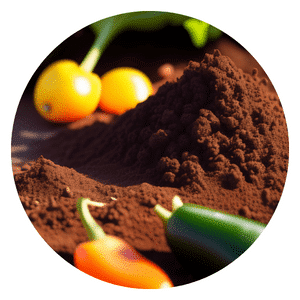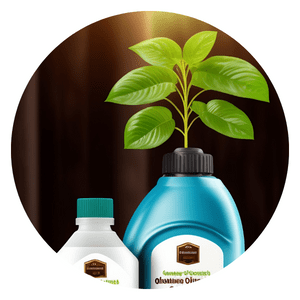Can you grow zucchini in texas?
Texas is known for its hot and dry climate, which can make gardening a challenging task.
Many gardeners in Texas wonder if they can grow vegetables like zucchini in their region.
Zucchini, with its tender flesh and delicate flavor, is a popular summer squash that grows well in most parts of the country.
However, it requires specific growing conditions to thrive.
In this article, we’ll explore the question of whether you can grow zucchini in Texas’s unique climate.
We’ll discuss the best varieties to choose from, soil conditions and fertilizers needed for successful cultivation, as well as tips on pest control and watering strategies.
Texas Zucchini Menu
Choose the right variety
Yes, you can grow zucchini in Texas. However, not all varieties of zucchini are suitable for the climate in this region.
It’s essential to select the right variety that thrives well in hot and humid conditions.
Black Beauty and Ambassador are two popular zucchini varieties that are known to grow well in Texas.
These varieties produce dark green fruits with a rich flavor and texture.
They’re also resistant to common diseases such as powdery mildew, which is prevalent in hot and wet climates like Texas.
When selecting your zucchini seeds or seedlings for planting, ensure they’re labeled for warm climates or specifically for Texas regions. This way, they’ll have a better chance of growing healthy plants that can resist diseases and thrive under the hot sun.
Start indoors or use transplants
If you’re looking to grow zucchini in Texas, whether you choose to start seeds indoors or use transplants will depend on a number of factors.
Starting seeds indoors can be a good option if you have limited space outside or want to get a head start on the growing season.
However, it requires more effort and attention than using transplants.
Using transplants can be a good option if you don’t have the time or resources to start seeds indoors.
Transplants are already established and ready to plant, making them an easy choice for those who want to get started quickly.
Additionally, purchasing young zucchini plants from a local nursery ensures that they are adapted to your area’s climate and soil conditions.
Regardless of which method you choose, keep in mind that zucchini grows best in well-drained soil with plenty of sunlight and regular watering.
With proper care and attention, you can enjoy fresh homegrown zucchinis all summer long!
Timing is crucial
Timing is crucial when it comes to planting zucchini in Texas.
It’s important to wait until the danger of frost has passed, which typically occurs around mid-March in most parts of the state. This will ensure that your plants won’t be damaged by any sudden drops in temperature.
In addition to waiting for the frost to pass, you should also pay attention to soil temperature.
Zucchini prefers warm soil and should be planted when the ground temperature reaches around 60 F (15 C).
If you plant too early, your seeds may rot before they have a chance to germinate.
Once you’ve determined that it’s safe to plant your zucchini seeds, make sure you choose a sunny location with well-draining soil.
Zucchini needs at least six hours of direct sunlight each day and doesn’t do well in soggy or waterlogged soil.
With proper timing and care, you can successfully grow zucchini in Texas and enjoy a bountiful harvest throughout the summer months!
Provide full sun
Zucchini plants require a lot of sunlight to grow and produce fruit.
In fact, they need at least six hours of direct sunlight each day.
So if you live in Texas, where the sun shines bright and strong for most of the year, growing zucchini should be no problem.
Just make sure to choose a sunny spot in your garden or yard.
When selecting a location for your zucchini plants, look for an area that gets plenty of direct sunlight throughout the day.
Avoid planting them in shady areas or under trees that may block the sun’s rays.
You can also consider using raised beds or containers to grow your zucchini if you don’t have a suitable ground space with full sun exposure.
In addition to providing full sun, it’s important to keep the soil moist but not waterlogged when growing zucchini in Texas. The hot and dry weather can quickly dehydrate the plant if not properly watered.
So make sure to water your zucchini regularly, especially during periods of drought or extreme heat, and provide sufficient drainage to prevent overwatering.
With enough sunshine and proper care, you can expect a bountiful harvest of fresh zucchinis right from your Texas garden!
Prepare the soil
To grow zucchini successfully in Texas, it is essential to prepare the soil properly. First and foremost, ensure that the soil is well-draining. Heavy clay soils can retain too much water, leading to root rot and other fungal diseases.
On the other hand, sandy soils drain too quickly and may not hold enough moisture for your plants to thrive.
Adding organic matter such as compost or well-rotted manure can help improve soil structure and drainage.
In addition to improving drainage, adding compost or manure can also increase soil fertility.
Zucchini plants require a lot of nutrients like nitrogen, phosphorus, and potassium to grow healthy leaves, flowers, and fruits.
A fertile soil with a good balance of these nutrients will promote vigorous growth and high yields.
You can either mix in compost or manure before planting or apply it as a side dressing during the growing season.
Overall, preparing the soil is an essential step in growing zucchini in Texas successfully.
A well-draining and fertile soil will provide your plants with a healthy environment for optimal growth and productivity.
In the hot Texas sun they grow, Zucchini plants in a neat row. With proper care, they flower and fruit, Healthy and green, from root to shoot. An ample harvest, can be had, From summertime into fall, so glad! Oh happy gardeners with their bounty this year, And many a delightful zucchini recipe near.
Chappy The Gardener
Space plants properly
Zucchini plants can thrive in Texas with proper care and attention.
When planting zucchini, it is important to space them properly to avoid overcrowding and promote healthy growth.
The recommended spacing for zucchini plants is typically 2-3 feet apart.
Allowing enough space between plants ensures proper air circulation, which helps prevent the development of fungal diseases that can damage or kill your crop.
Zucchini plants also need plenty of room for their large leaves and sprawling vines to spread out and absorb sunlight.
While zucchinis are generally easy to grow, they do require regular watering and fertilization to produce a bountiful harvest.
In addition to spacing them properly, you should also take care not to overwater your zucchinis as this can lead to root rot or other issues.
With a little bit of effort, you can enjoy fresh, delicious zucchinis straight from your garden all summer long!
Provide regular watering
If you are planning to grow zucchini in Texas, maintaining proper watering practices is crucial for its growth.
Zucchinis require consistent moist soil to thrive, so it’s best to water them regularly.
However, overwatering can be a problem as it can lead to root rot and other issues. To ensure that your zucchini plants receive adequate moisture, provide around 1 inch of water per week.
It’s also important to note that the amount of water required by the plant may vary depending on different factors such as temperature and soil type.
During hot summer months or dry spells, you may need to adjust your watering schedule accordingly.
One way to check if your zucchini needs watering is by feeling the topsoil – if it feels dry, it’s time to water.
To avoid overwatering, make sure that the soil has good drainage and doesn’t have any standing water. You can achieve this by adding organic matter such as compost or sand into the soil mix.
By following these tips for proper watering practices, you can successfully grow healthy zucchinis in Texas.
Mulch to conserve moisture
Yes, you can grow zucchini in Texas, but it requires regular watering to keep the plant from wilting in the summer heat.
One way to conserve moisture and reduce the need for frequent watering is by applying a layer of organic mulch around the base of the plants. This will help retain soil moisture by reducing evaporation and also suppress weed growth.
Organic mulch options such as straw or wood chips are highly recommended because they break down over time and add nutrients to the soil.
As they decompose, they improve soil structure and create a healthy environment for plant roots to grow.
It’s important not to apply too much mulch as this can lead to excess moisture retention and fungal diseases.
A 2-3 inch layer is ideal for most plants including zucchini, but be sure not to cover the stems or leaves directly with the mulch as this can also cause problems.
Fertilize appropriately
One of the most important factors to consider when growing zucchini is fertilization.
The plant requires an adequate supply of nutrients to grow properly and produce a bountiful harvest. Using a balanced organic fertilizer or compost is an effective way to provide the necessary nutrients for your plants.
Organic fertilizers are made from natural materials such as bone meal, blood meal, and fish emulsion that slowly release nutrients into the soil over time.
When applying fertilizer or compost to your zucchini plants, it’s important to follow the package instructions for application rates carefully.
Over-fertilizing your plants can result in burnt leaves or stunted growth while under-fertilization may cause poor growth or low yields.
Applying too much nitrogen-rich fertilizer may also lead to bushy foliage instead of fruit production as well as attract pests like squash bugs which love nitrogen-rich environments.
By using a balanced organic fertilizer or compost correctly and following application instructions carefully, you’ll give your zucchini plants the necessary nutrients they need for optimal growth and yield potential in your Texas garden!
Monitor pests
It is susceptible to common garden pests like aphids, squash bugs, and cucumber beetles.
To ensure a healthy zucchini harvest, you need to monitor for pest infestations regularly.
One of the best ways to manage pest infestations in your zucchini garden is through organic pest control methods.
These include spraying insecticidal soap or neem oil on affected plants, introducing beneficial insects like ladybugs or lacewings into your garden to eat pests, and using physical barriers like row covers to prevent pests from accessing your plants.
Another effective way of controlling pests in your zucchini garden is through companion planting.
Planting herbs like basil or marigold near your zucchinis can help repel common pests while attracting beneficial insects that will feed on them.
Additionally, intercropping with other vegetables such as beans and corn can make it harder for pests to find their target crop while also providing diversity and nutrient balance in the soil.
Practice proper pruning
Zucchini is a versatile and easy-to-grow vegetable that can thrive in a variety of climates, including Texas.
However, to ensure a healthy and productive harvest, it’s important to practice proper pruning techniques.
One of the most important aspects of pruning zucchini plants is removing any dead or diseased leaves.
Dead or diseased leaves not only affect the appearance of the plant but also hinder its ability to get adequate airflow.
Poor airflow can lead to higher humidity levels, which creates an ideal environment for fungal diseases like powdery mildew.
By removing these leaves as soon as they are identified, you can improve air circulation around the plant and reduce the risk of disease spread.
In addition to improving airflow and preventing disease spread, regular pruning helps promote healthy growth by redirecting energy towards producing new fruit rather than maintaining old foliage.
It’s recommended that you prune your zucchini plants regularly throughout the growing season for optimal health and productivity.
With proper care and maintenance, you can enjoy a bountiful harvest of fresh zucchinis all summer long in Texas!
Harvest regularly
Yes, zucchini can be grown in Texas. However, it is important to note that the hot and dry climate of Texas may require more frequent watering for the plants to thrive.
Additionally, it is important to harvest zucchinis regularly when they reach a desired size of around 6-8 inches long.
Regular harvesting not only promotes continued production but also prevents the fruits from becoming too large and tough. If left on the plant too long, zucchinis can become bitter and less appetizing.
It is recommended to check the plants daily during peak season for any new fruits that are ready for harvesting.
Overall, with proper care and attention, home gardeners in Texas should have no problem growing a plentiful supply of fresh zucchinis throughout the growing season.
Be mindful of the heat
During periods of extreme heat, it is essential to be mindful of the temperature and take steps to protect your plants from scorching.
One way to do this is by providing shade for your zucchini plants. You can use shade cloth or create a makeshift cover using a bedsheet or burlap.
Another way to protect your zucchini plants from the heat is by using row covers.
Row covers are made from lightweight fabric and can be draped over the plants like a blanket. They help regulate temperature and humidity levels around the plant, preventing them from drying out.
Overall, being mindful of the heat is crucial when growing zucchinis in Texas.
By providing shade or using row covers during times of extreme temperatures, you can ensure that your plants remain healthy and productive throughout the growing season.
In conclusion, growing zucchini in Texas can be a fun and rewarding experience.
With the right preparation and care, home gardeners can enjoy a bountiful harvest of this versatile vegetable throughout the hot summer months.
Remember to choose the right variety for your area, provide plenty of water and nutrients, and watch out for pests and diseases.
Whether you’re grilling them up for dinner or using them in baked goods, fresh zucchini from your own backyard is hard to beat.
So if you haven’t already, consider giving zucchini a try in your Texas garden this year!
Click To Grow
Helps Us Grow – Share If You Like
















